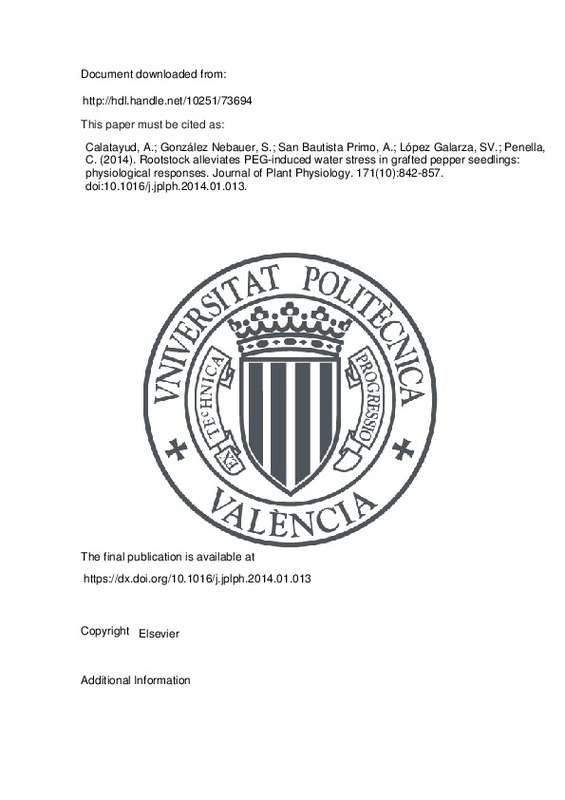JavaScript is disabled for your browser. Some features of this site may not work without it.
Buscar en RiuNet
Listar
Mi cuenta
Estadísticas
Ayuda RiuNet
Admin. UPV
Rootstock alleviates PEG-induced water stress in grafted pepper seedlings: physiological responses
Mostrar el registro completo del ítem
Penella, C.; González Nebauer, S.; San Bautista Primo, A.; López Galarza, SV.; Calatayud Chover, Á. (2014). Rootstock alleviates PEG-induced water stress in grafted pepper seedlings: physiological responses. Journal of Plant Physiology. 171(10):842-857. https://doi.org/10.1016/j.jplph.2014.01.013
Por favor, use este identificador para citar o enlazar este ítem: http://hdl.handle.net/10251/73694
Ficheros en el ítem
Metadatos del ítem
| Título: | Rootstock alleviates PEG-induced water stress in grafted pepper seedlings: physiological responses | |
| Autor: | Penella, Consuelo Calatayud Chover, Ángeles | |
| Entidad UPV: |
|
|
| Fecha difusión: |
|
|
| Resumen: |
[EN] Recent studies have shown that tolerance to abiotic stress, including water stress, is improved by grafting. In a previous work, we took advantage of the natural variability of Capsicum spp. and selected accessions ...[+]
|
|
| Palabras clave: |
|
|
| Derechos de uso: | Reserva de todos los derechos | |
| Fuente: |
|
|
| DOI: |
|
|
| Editorial: |
|
|
| Versión del editor: | https://dx.doi.org/10.1016/j.jplph.2014.01.013 | |
| Código del Proyecto: |
|
|
| Agradecimientos: |
|
|
| Tipo: |
|







![[Cerrado]](/themes/UPV/images/candado.png)


